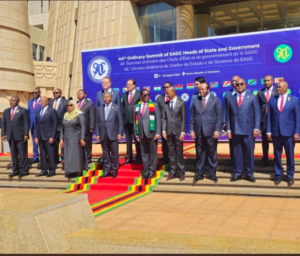PLAYING POWER GAMES: UNRAVELLING THE STRATEGY OF ILLICIT REGIMES
As an unauthorised ruler, precariously perched on the seat of power, amidst a political climate as erratic as the desert’s infrequent rains, what strategies might you employ to extend your reign? Your situation grows increasingly dire against the stark canvas of your party’s economic mismanagement, which has led to stagnation, negative growth, and a crippling paralysis of the state. However, the looming prospect of political ruin and subsequent collapse doesn’t deter you from your pursuit of retaining power.
As a ruler, you could be seduced by tactics that have yielded success previously. A formula that struck a chord with a populace that was easily beguiled, a scheme that presented an illusion of power retention whilst simultaneously deceiving and exploiting the very people it claimed to protect.
A case in point is the disorderly, unconstitutional usurping of land, a strategy that tapped into populist sentiments previously. Despite its chaotic nature, it resulted in an alarming food insecurity, ironically after commandeering some of the most fertile land on the continent. This land, once the source of sustenance for an entire continent, now barely manages to feed its immediate population.
The irony lies in the fact that the lack of land for the people needed the disreputable ruling party to be realised. This cognisance dawned with the perceived threat of a newly-formed opposition party in 1999. The opposition party emerged as an alternative to the ruling party, whose parasitic approach had brought the economy to its knees. Consequently, the ruling party used populism as a smoke screen, obscuring their failures and stemming the tide of support towards the disgruntled war veterans and the budding opposition.
What was truly at risk was the maintenance of the status quo, hinged precariously on the continuation of illicit power. The ruling party had lost its grip on the people’s trust, a reality that isn’t as perplexing as it sounds. The exploitative elite within the party felt their capacity for unchecked corruption threatened by this loss of faith. To address this, they feigned concern for the public’s welfare while fortifying their control to prevent a potential loss of power, which would curtail their unmitigated plundering.
Grandiose visions like “Vision 2030” and other populist strategies, including the dubious national recolonisation program and the anti-transition destabilisation program, mirror the chaotic land seizures. These tactics primarily appeal to the politically naive, serving as empty vessels of inflated promises. They provide the ruling party’s parasites a mechanism to extend their reign and allow for continued plunder, while consolidating power under false pretences.
In the grand scheme of things, these strategies are akin to balloons filled with hot air – momentarily distracting but inherently devoid of substance. Their true purpose lies not in bringing about meaningful change, but rather in buying time to perpetuate the cycle of illegitimate power retention, corruption and exploitation.




